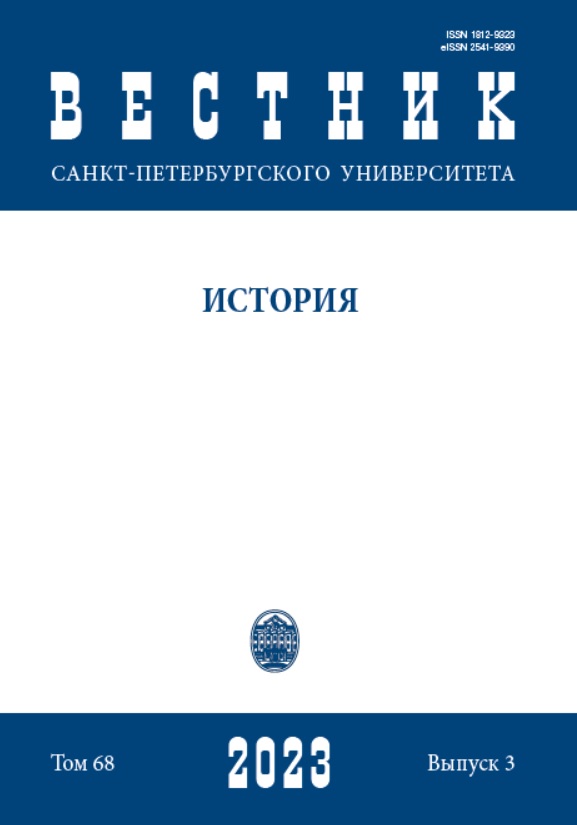New Books and Old Trends in the Study of the Russian Middle Ages
DOI:
https://doi.org/10.21638/spbu02.2023.315Abstract
Kiev Rus’ is a common “antiquity” for the East-European countries and nations. During the previous century it became one of the most popular themes for the historians, particularly, for the Soviet scholars. It is gratifying that an understanding of the significance of this epoch for the adequate perception of complex East-European history has not faded. This article analyzes new books devoted to Kiev Rus’ written by S. N. Temushev. His first work about the “formation of the state” of Ancient Rus’ is not of great scholarly interest but the second one is indicative of the current processes of the complex situation in the humanities. This author’s approach to the historical sources is very disputable — he evidently underestimates the significance of Russian chronicles. His perception of historiography is also arguable because he blurs the boundaries between different trends. There is a combination and mixture of different notions in his work. The author of the monograph puts forward some “tax-tribute system” and tries to show it role in formation of some “state and feudalism”. He does not take in account such scholarly achievement of Western historiography as identification of “chiefdom”, but at the same time does not propose any new concept. He begins with a critique of feudalism but ends up as an adherent of so called “state feudalism” — in its most artificial and meaningless sense in our historiography. His interpretation of the relationships of eastern Slavs with their neighbours, particularly, with the Lithuanians is also doubtful. In his opinion, Finno-Ugric and Baltic tribes were not the objects of foreign policy of Rus’, but some “foreign confederates”.
Keywords:
S. N. Temushev, Ancient Rus’ state, sources, historiography, feudalism, state feudalism, tax-tribute system
Downloads
References
Downloads
Published
How to Cite
Issue
Section
License
Articles of "Vestnik of Saint Petersburg University. History" are open access distributed under the terms of the License Agreement with Saint Petersburg State University, which permits to the authors unrestricted distribution and self-archiving free of charge.





